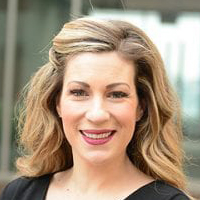
It’s no secret that different clients have different goals, wants, and needs. ”Transitioners” — people in their 50s and 60s — are about to enter or have already entered a period of life notable for the profound changes it brings. Preparing for retirement is about much more than just financial planning and, quite frankly, that is where many financial professionals fall short in offering their clients truly valuable services.
Early in my career, I spent time working at Nike, where the philosophy was to “ask an athlete.” This approach helped every employee be laser-focused on athlete wants and needs. Today, I and my team at Brighton Jones, a wealth management firm based in Seattle, have been implementing this same approach in an effort to elevate our clients’ experience, particularly with pre-retirees and retirees. This, in turn, allows us to transform and predict services that meet and exceed clients’ needs.
As we hone in on clients’ wants and needs, we’ve introduced panels that are composed of a variety of clients and meet every other month for about 90 minutes. These panels are intentionally diverse and span multiple demographics such as age, region, wealth, race, work history, and more. Transitioners make up about a third of the panel participants, and the insight we’ve gained from them specifically has enabled us to recognize common pain points and provide evolving services to meet their needs.
Three common themes we’ve heard with our transitioner clients are technology, community and education:
When it comes to technology, don’t count transitioners out. Many in their 50s and 60s likely were not keen on Zoom culture one year ago, but the pandemic has basically forced their hand, leading them to adopt and gain greater confidence in technology.
Not only have transitioners relied on tech to connect with family during this trying time, but they see the need to remain adept with technology for everyday life well into the future. They also want their wealth management experience to mimic this technology-centric mindset. For example, through our panels, transitioners have had a hand in guiding us on what our new client app should look like, as well as how to make it more user-friendly, including the implementation of certain functions we otherwise would not have thought of.
Transitioners are turning to like-minded “communities” for social needs. During the pandemic, people have been isolated from family and friends. We’ve found that transitioners are increasingly turning to an interesting cohort to meet their social needs: like-minded individuals in their wealth management community network.
As a result, we are now developing programs that create these community networks specifically tailored to clients’ interests and need for social interactions. For example, when travel becomes commonplace again after the pandemic, if a Brighton Jones client is traveling to Boca Raton, Fla., and wants to golf, we will have a client experience community manager who can connect them with other clients in the region who golf regularly.
Even during the pandemic, we are working on virtual client-experience programs to allow this elevated “meet-and-greet” between clients. We think transitioners will continue to uncover new social opportunities with the community that are built into their wealth management firm, and advisors should be aware that bringing these individuals together can bolster the full client experience far beyond financial planning needs.
There is a real need for education on senior living issues. Recently, a 65-year-old client was detailing his pain points around younger family members not understanding the ins and outs of taking on the role of trustee. The client asked that we educate him and his family members on what it means to be a trustee.
This type of situation should be a lightbulb moment for financial professionals — transitioners and younger generations tend to have limited education on these serious matters (which is no fault of theirs and one reason why they are turning to financial professionals in the first place). It’s our job to curate and evolve these types of financial and educational services to allow clients to age with confidence. The client-advisor relationship needs to be more holistic, providing constant education on life’s most important events, everything from what being a trustee entails to what a power of attorney is, as well as the emotional, social, and financial decisions around retirement homes for aging parents, and more. We see our role as that of a life coach, not strictly a financial advisor.
By creating these focus groups and focusing on pain points, we have been able to elevate both our service offerings and the overall client experience. Gone are the days of a financial professional meeting infrequently with individuals just to number-crunch investments and calculate a realistic retirement age. Clients now want and demand a holistic experience that addresses multiple facets of their life, allowing them to thrive not only from a financial perspective, but also in terms of their emotional and social growth.
Carley Dillon is vice president of client experience at Brighton Jones, a comprehensive wealth planning firm with $8 billion in AUM.







